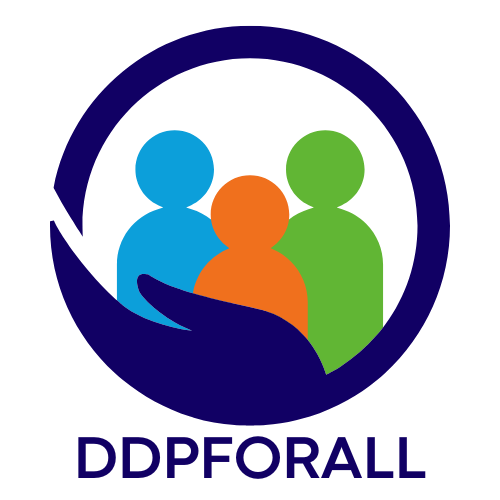Table of Contents
ToggleIn a world where the written word reigns supreme, pursuing a doctorate in reading and literacy online might just be the smartest decision since sliced bread—or at least since the invention of spellcheck. Imagine diving deep into the fascinating realm of literacy while lounging in your favorite pajamas. Sounds dreamy, right?
Overview of Doctorate in Reading and Literacy Online
A doctorate in reading and literacy online offers an advanced exploration of literacy education theories and practices. Many programs focus on curriculum development, adult literacy, and literacy assessments. Earning this degree equips educators with the skills to address diverse literacy needs.
Learners engage in research that enhances reading instruction methods. Courses often cover topics such as literacy leadership, digital literacy, and reading intervention strategies. Each course builds a strong theoretical foundation complemented by practical applications.
Flexibility stands as one major advantage of online programs. Students can balance academic commitments with personal and professional responsibilities. Time management becomes essential for successful completion.
Networking opportunities arise through virtual interactions, allowing students to connect with experts in the field. Mentorship can enhance learning experiences as students collaborate with faculty. Resources, such as online libraries and webinars, support ongoing professional development.
Graduates often pursue careers in educational leadership, curriculum design, and literacy advocacy. Positions in K-12 settings, higher education institutions, and literacy-focused organizations become readily available. Employment prospects remain strong in a society that increasingly values literacy skills.
The doctorate strengthens credentials and provides opportunities to contribute to literacy research and policy. Passion for reading and commitment to advancing literacy serve as key motivators for pursuing this advanced degree.
Benefits of Pursuing a Doctorate Online

Pursuing a doctorate online in reading and literacy offers significant advantages tailored to the needs of modern learners.
Flexibility and Convenience
Many professionals juggle job commitments with family responsibilities. Online programs allow students to create their own schedules, accessing coursework when it suits them. This flexibility supports their ability to progress at their own pace. Students can choose study environments that enhance their focus, whether at home or in a coffee shop. Engaging in online discussions and assignments integrates seamlessly into their daily lives.
Enhanced Learning Opportunities
Advanced courses in online doctorate programs cater to diverse learning styles. Students access a wide array of multimedia resources, including webinars and virtual workshops. Exposure to cutting-edge research fosters a deeper understanding of literacy issues. Networking with peers from various backgrounds enriches the educational experience and encourages collaboration. Online platforms facilitate mentor relationships, providing guidance from established experts in the field. Students can explore unique topics, bridging theory and practice effectively.
Curriculum and Course Structure
The curriculum of an online doctorate in reading and literacy offers a comprehensive overview of key literacy concepts. Students engage in core courses that explore advanced theories and practices.
Key Subjects and Areas of Focus
Courses address critical subjects such as curriculum development, adult literacy, literacy assessments, and digital literacy. Educators learn to analyze diverse literacy needs and implement effective instruction methods. Research methods in literacy, literacy leadership, and technology in education are also highlighted. These key areas foster a deep understanding of reading instruction and its impact on various learning environments.
Dissertation and Research Components
The dissertation component requires significant research contributions to the field. Candidates select topics relevant to current literacy challenges, allowing them to explore innovative solutions. Support from faculty ensures robust guidance throughout the research process. Graduates produce original findings that influence literacy policy and practice. This culminating experience strengthens their expertise and prepares them for leadership roles in education and literacy advocacy.
Admission Requirements and Process
Admission to an online doctorate in reading and literacy involves specific prerequisites and well-defined steps. Prospective students must understand these elements to streamline their applications.
Prerequisites for Applicants
Applicants typically need a master’s degree in education, literacy, or a related field. Many programs also require a minimum GPA of 3.0 on a 4.0 scale from previous graduate studies. Relevant teaching experience, especially in literacy instruction, enhances an application. Some programs might also ask for standardized test scores, such as the GRE, while others may waive this requirement based on professional experience. Letters of recommendation from professionals in education or literacy contribute positively to the evaluation process. A personal statement, outlining the applicant’s goals and motivations for pursuing the doctorate, is essential.
Application Steps and Tips
The application process begins with gathering necessary documents like transcripts and test scores. Completing an online application form represents the next crucial step. Applicants benefit from carefully writing their personal statements, showcasing their passion for literacy education. Submitting letters of recommendation early prevents last-minute issues. Meeting application deadlines significantly helps in the evaluation process. Communication with program admissions advisors can clarify any uncertainties throughout the process. Following these steps enhances the chance of acceptance into a competitive program.
Career Opportunities and Outcomes
Graduates with a doctorate in reading and literacy access numerous career opportunities that impact education significantly. Many enter roles such as literacy coach or curriculum developer, focusing on improving literacy outcomes. Some choose to work as educational consultants, promoting effective literacy practices across various institutions. K-12 leadership positions often attract graduates, allowing them to shape literacy programs at the school level. Higher education roles, such as university faculty, open avenues for advancing literacy research and teaching future educators.
Possible Job Roles
Various job roles emerge for individuals with this advanced degree. Literacy coordinator positions involve overseeing literacy programs in schools or districts. Educational researchers conduct studies that advance understanding of literacy issues. Roles in nonprofit organizations often center on advocacy and program development, promoting literacy initiatives across communities. Adult education program directors focus on enhancing literacy among adult learners. Finally, leadership roles in educational policy shape strategies that address literacy challenges at local or national levels.
Impact on Professional Growth
Earning a doctorate in reading and literacy offers significant professional growth. Increased expertise in literacy theory and practice enhances credibility among peers and employers. Graduates often experience expanded networking opportunities, connecting with professionals across different educational sectors. Engaging in original research fosters critical thinking and problem-solving skills used in various contexts. Leadership roles promote advocacy for effective literacy practices, influencing educational policies and authentic change in literacy education.
Pursuing an online doctorate in reading and literacy opens doors to a rewarding career dedicated to enhancing literacy education. The flexibility of online programs allows educators to tailor their learning experience while balancing personal and professional commitments.
With a curriculum designed to address current literacy challenges and a focus on research and practical application, graduates emerge equipped to lead and innovate in the field. They not only gain advanced knowledge but also develop critical skills that can significantly impact literacy practices and policies.
This educational journey ultimately fosters a deep commitment to advancing literacy, making a lasting difference in communities and educational institutions.







